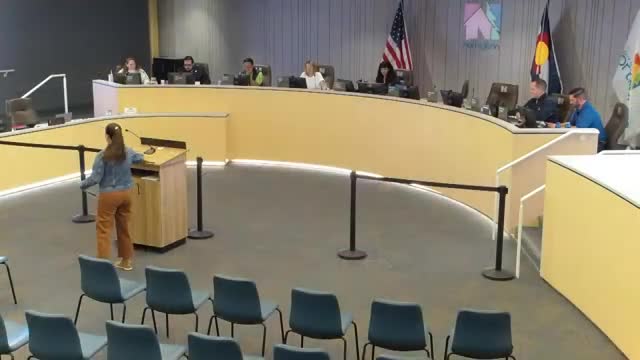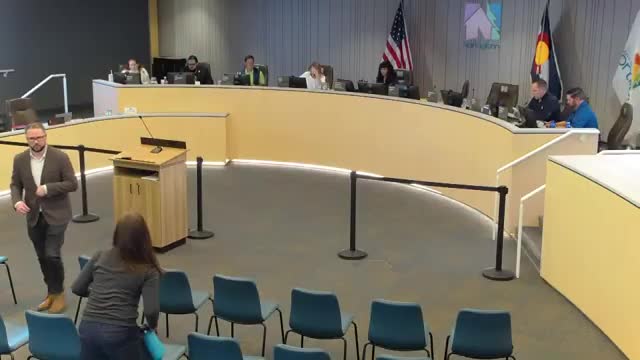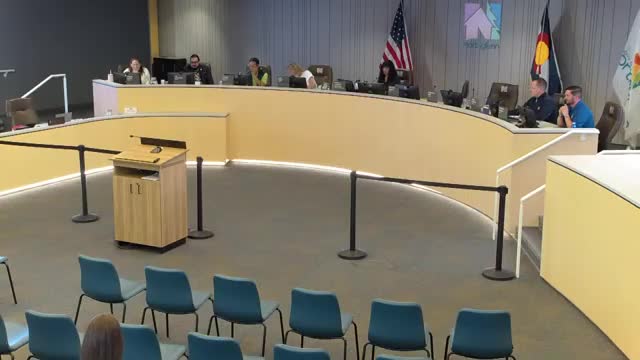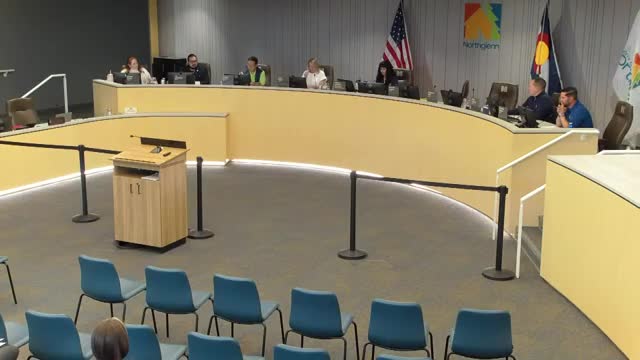Article not found
This article is no longer available. But don't worry—we've gathered other articles that discuss the same topic.

Council briefed on draft 2026 budget calendar; adoption targeted for Oct. 13

Northglenn’s CREW reports housing placements, expands threat‑assessment coordination across Adams County

Council favors flex/light industrial mix with solar options for Section 36 subarea

